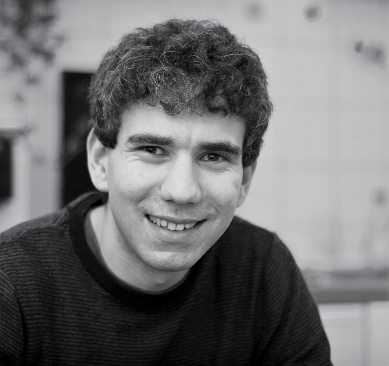Introducing: Camilo Erlichman
Camilo Erlichman is a historian who recently joined the Institute for History as a lecturer in the International Studies programme. He introduces himself.

I was born in Buenos Aires, Argentina, but moved to Germany at a very young age and grew up there. As with many Argentineans whose families emigrated to the country in the late nineteenth and twentieth century, my own background could be described as a rather European potpourri. I completed my BA in History at the University of Bonn, and then moved to the UK for my postgraduate studies. I gained my Master’s in Modern British and European History from the University of Oxford and a PhD in History from the University of Edinburgh in 2015, where I was a Principal’s Career Development Scholar and taught modern European history. During my PhD, I was also a DAAD-funded Visiting Scholar at the University of Cologne and held a fellowship of the German Historical Institute London, all of which allowed me to conduct extensive archival research in Germany. Before joining Leiden University in September 2017, I was a Postdoctoral Researcher at the University of Amsterdam and the Amsterdam Centre for Contemporary European Studies (ACCESS Europe).
Most of my work has hitherto been concerned with the British occupation of Germany after the Second World War. My research has been primarily driven by the question of how the experience of occupation produces shifts in the social and political balance of power within occupied communities, generating long-term dynamics and novel inequalities which extend well beyond the period of occupation. At the same time, I am interested in the genealogy of macro and micro technologies of power used by different occupation regimes to control land and people. My doctoral thesis was a study of political stabilisation, power relations, and interactions between the occupiers and the occupied population in the British zone of occupation, and I am currently completing a monograph on that subject. Another recent outcome of this interest is a forthcoming edited volume covering all three western zones of occupation: Camilo Erlichman and Christopher Knowles (eds.), Transforming Occupation in the Western Zones of Germany: Politics, Everyday Life and Social Interactions, 1945-1955 (London: Bloomsbury, 2018).
More recently, my research has moved in a comparative and transnational direction, and I have been involved in a number of collaborative projects that reflect my preoccupation with placing the immediate post-war period in Germany within a broader historiographical framework. One central element of that comparative interest has been the interrelationship between the social and the political in mid-twentieth century Europe, and I am currently working on projects that broadly gravitate around the interface between populations and political authorities. One such project explores the history of techno-politics and technocracy, and the wider role of experts in politics and state administrations, a subject on which I have recently convened an international conference at the University of Amsterdam with Peter Romijn (NIOD/UvA). Together with Martin Conway (Oxford) and Luiza Bialasiewicz (Amsterdam), I am also the convener of a new interdisciplinary project that explores competing conceptions of social justice in Europe during the 20th century. I look forward to developing these as well as new collaborative research projects with colleagues at Leiden University.
